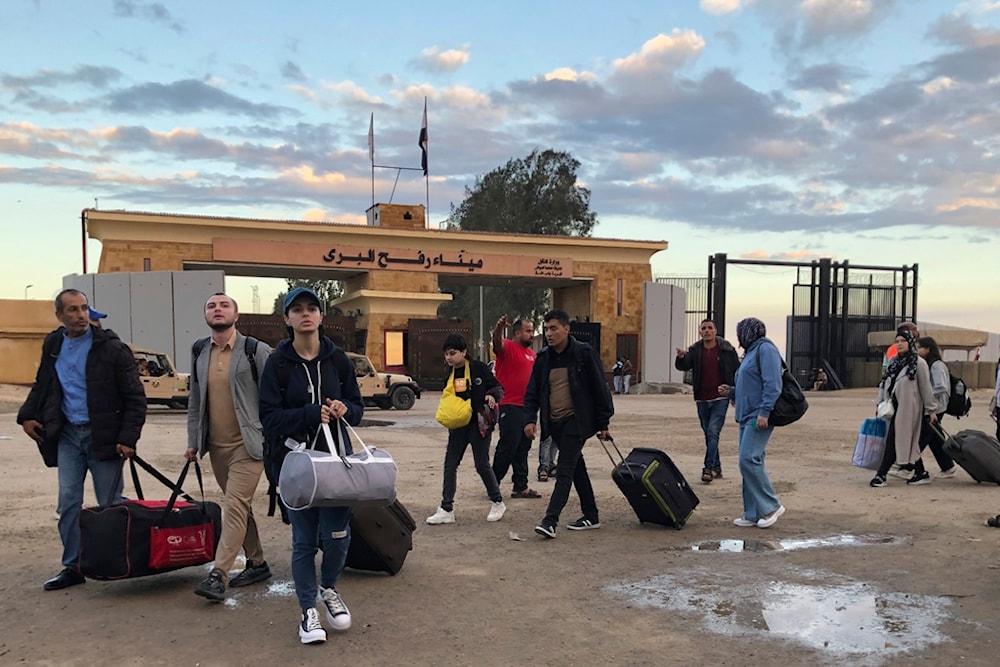WHO: Gaza Health Sector buckled to its knees
The Israeli invasion in Gaza has led to the immobility of rescue teams and ambulances in several areas.
-

Palestinians with European passports who were evacuated from Gaza sit across the Rafah border crossing in Egypt, on Wednesday, Nov. 15, 2023. (AP)
The World Health Organization reported today that they have not received any updated data from Gaza regarding estimates of injuries and deaths over the past four days, due to disruptions in communications due to the intensity of the ongoing aggression.
The organization confirmed that the health sector in Gaza has "buckled to its knees", indicating that 65% of primary care facilities are out of order, and 69% of hospitals are not operational.
The Organization pointed out that "ground operations in the city of Gaza and near hospitals, along with the fuel shortage, have led, in addition to the lack of fuel, to the immobility of rescue teams and ambulances in several areas."
According to the information available, the Ministry of Health, UNRWA, and the World Health Organization recorded, since mid-October, 71,224 cases of acute respiratory infections, 44,202 cases of diarrhea (22,554 cases in children under 5 years), 808 cases of chickenpox, and more than 14,195 cases of skin rashes, in addition to 10,952 cases of scabies and lice.
The WHO added that the increasing health needs, and the shortage of fuel, water, food, and medical supplies exacerbate the dire situation for hospitals and health facilities that are only partially operational.
Read more: WHO slams Gaza aid delivery hurdles
Communications still cut
Al Mayadeen's correspondent in Gaza reported at dawn on Friday that information regarding the events in the northern Gaza Strip was not available after all means of communication were cut.
Our correspondent added, "Transmission towers in Gaza have depleted their fuel supply, leading to a complete disruption of communications and internet throughout the entire Strip."
Communication services in the Gaza Strip came to a complete halt after the entry of fuel into the Strip was blocked by the Israeli occupation. This information was verified by both the United Nations and the two telecommunications operators. Meanwhile, Human Rights Watch issued a warning about potentially "deadly" repercussions.
The two primary telecommunications companies in the sector, Paltel and Jawwal, stated in a press release on Thursday that all services were disrupted due to the prevention of fuel entry, and all backup energy sources required to operate the main network were depleted.
The occupation has blocked the entry of fuel into the Gaza Strip since the beginning of the Israeli aggression on Gaza. Amid the communications blackout, the IOF uses the blackout to commit its most heinous atrocities, without the world watching them.
Read more: Russian analyst: Strategic consequences to emerge from Gaza war

 3 Min Read
3 Min Read









